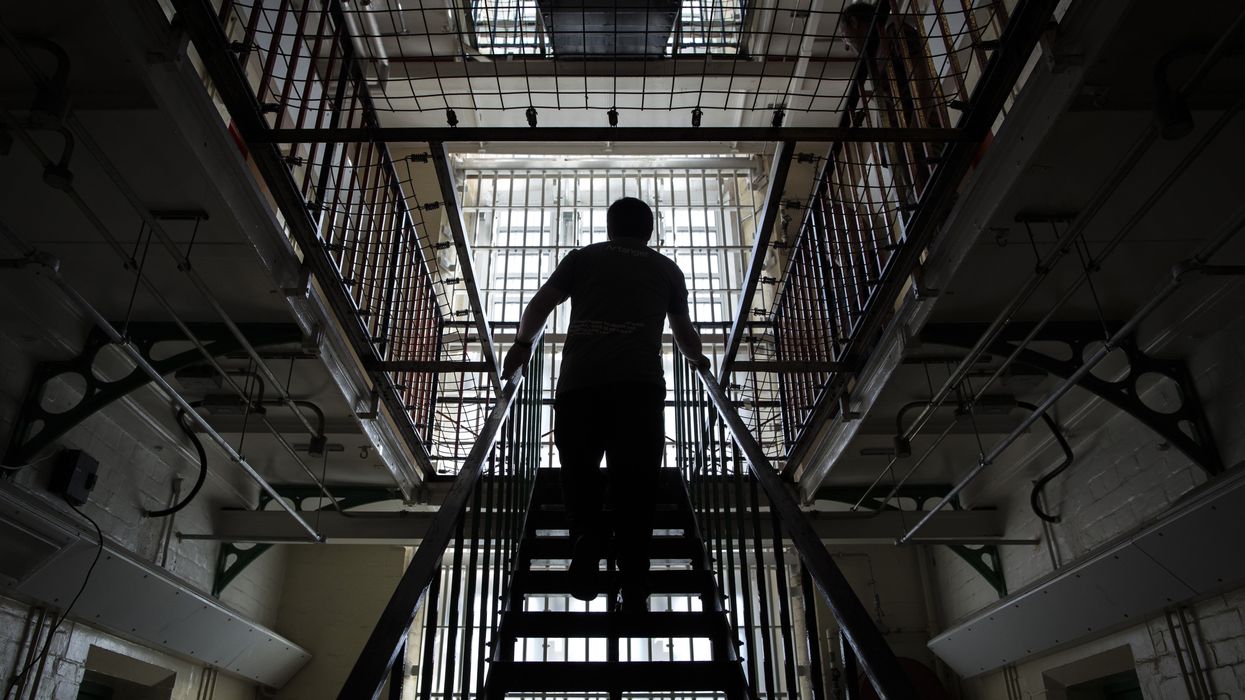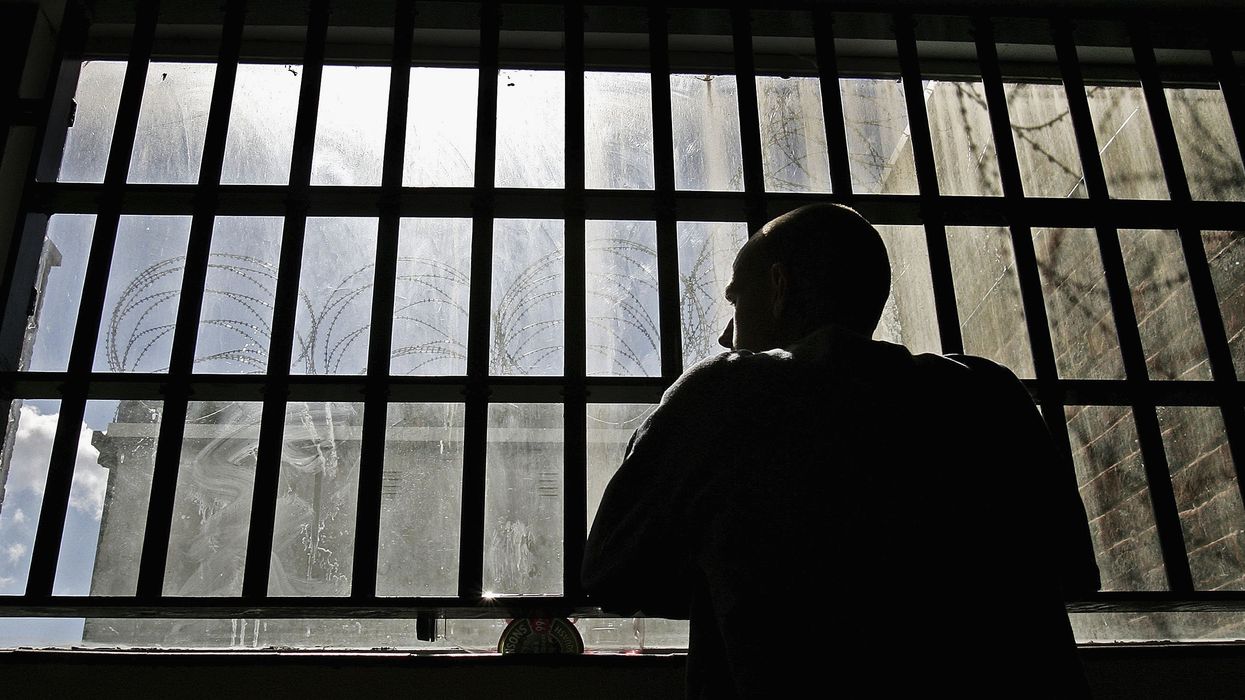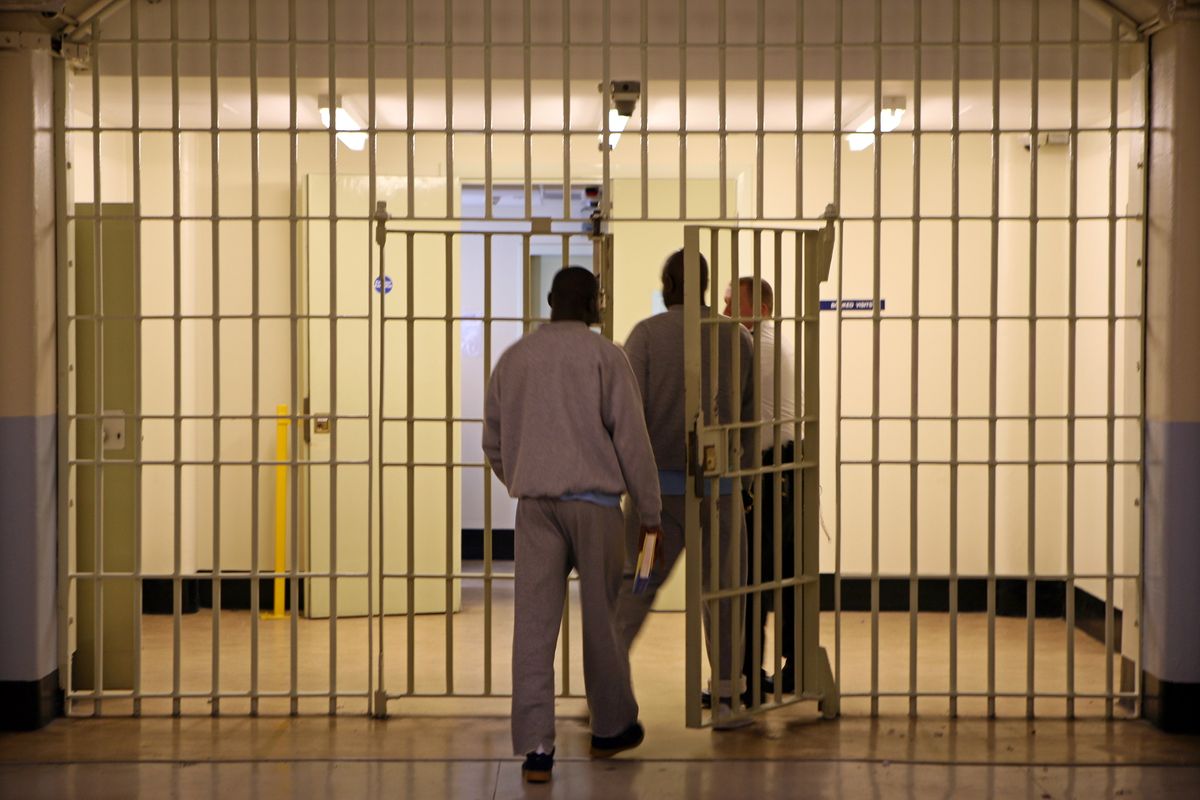Foreign criminals costing taxpayers £643m a year as record numbers ‘spiralling out of control’

Expert warns rise in foreign prison officers fuelling accidental releases |
GB NEWS

Albanian, Polish, Romanian, Lithuanian, Portuguese, Jamaican, Pakistani and Somali make up the largest groups of foreign prisoners in British jails
Don't Miss
Most Read
Trending on GB News
Foreign criminals are costing the taxpayers a record £643million a year, a staggering new study has revealed.
The fees for prosecuting and imprisoning these individuals have spiralled by 50 per cent since 2019, according to research from the Onward think tank.
Foreign offender numbers in British jails have risen from 9,089 to 10,321 over the same timeframe.
According to Onward’s figures, the yearly costs are equivalent to the salaries of 15,000 new police officers or 20,000 nurses.
TRENDING
Stories
Videos
Your Say
The think tank suggests these daunting impositions on the public purse are driven by longer sentences and a surge in the number of prisoners held on remand.
Sir Simon Clarke, Onward's director and a former Cabinet minister, said costs were "spiralling out of control".
"This report exposes the true scale of the burden on taxpayers' money that could instead be spent on front-line public services.
"Labour must explain why these costs have soared and what it will do to bring them down," he declared.

Foreign criminals are costing the British taxpayer £643million a year
|GETTY
The comprehensive analysis comes as Britain grapples with severe prison overcrowding, including parlous management of release mechanisms, and stretched public services.
Onward’s proposals include immediate deportation for minor offenders before conviction, stricter interpretation of European human rights legislation, and broader implementation of removal schemes.
Such measures could potentially release 10,000 prison spaces, representing 12 per cent of the current jail population and bringing capacity down to 86 per cent.
Ellie Craven, the report's author, stressed: "Britain's prisons are dangerously full and financially unsustainable.
LATEST DEVELOPMENTS:

The number of foreign prisoners in British jails has risen by 50 per cent since 2019
|GETTY
"For years, the system has been running on the edge, with early releases now becoming routine.
"Removing foreign national offenders is one of the few realistic ways to relieve pressure and restore stability," she told The Telegraph.
The think tank advocates fundamental changes to deportation procedures, including allowing courts to remove lower-level foreign offenders before their trials conclude.
This diversion scheme would target those facing sentences of less than two years.
Proposals extend to rewriting how British courts apply the European Convention on Human Rights, specifically curtailing offenders' abilities to challenge their removal.
The report backs Government plans enabling deportation immediately after sentencing, advancing beyond current rules that permit removal after 30 per cent of sentences are served.
Expanding the "Deport Now, Appeal Later" programme forms another key recommendation.
This scheme would encompass nations contributing the most foreign prisoners, including Albania, Poland, Romania, Lithuania, Portugal, Jamaica, Pakistan and Somalia.

The crisis was said to be 'spiralling out of control'
|GETTY
Onward’s report went on to show how human rights legislation has continued to hamper removal efforts.
Between April 2008 and June 2021, there were 21,521 appeals against deportations, with 6,042 proving successful.
Over a third of these successful appeals, approximately 2,400 cases, relied on human rights arguments.
Article 8 of the European Convention on Human Rights, protecting family life rights, accounted for nearly three-quarters of successful human rights appeals.
Onward proposes reinterpreting the removal threshold from proving "unduly harsh" impact on families to demonstrating "irreversible" harm.
Our Standards: The GB News Editorial Charter
More From GB News










